For a free, printable .PDF of the recipes in this book, email me at .
* * *
Ive been fascinated by health and nutrition for over twenty years, beginning at age 19 when I became a competitive bodybuilder and I would eat an entire rack of ribs every day for a week leading up to a competition. In my mid-twenties (no longer bodybuilding), I became a vegan, primarily for ethical reasons, but I dove deeply into the available science and pro-vegan literature, and I believed veganism was the healthiest way to eat. I then delved deeply into raw food veganism. I became a trained raw vegan chef, blogger, and cookbook author. I was deeply committed to veganism and built a whole career around it.
Then one day, I realized that my toddler daughter was not thriving. This was despite my very serious commitment to providing her with what I believed was a nutritionally complete diet and spending a small fortune in the highest quality supplements available. The full story of my transition from vegan, to reformed vegan, to elk-heart-eating, bloodthirsty carnivore is laid out briefly in this book, and in even more detail (for those who are interested) in one of my most highly trafficked blog posts of all time, as well as in an interview with Dave Asprey on his Bulletproof Radio podcast (for details, see Resources, Chapter 15).
The short version is that Ive done a complete, 180-degree reversal from my plants-only diet days. I now eat almost zero plants, except for occasional, specific medicinal purposes (some plants have powerful pharmacological compounds). The reasons why, the potential benefits, and how to instructions for trying the carnivore diet for yourself are what this book is all about.
Heres what the book is not: Im not trying to promote or advocate for the carnivore diet. My diet is a lifelong experiment and a work-in-progress. I have no idea if Ill still be eating this way in a year or decade from now.
Two things I know for sure:
1) I learned my lesson with veganism.
Early positive results dont necessarily indicate long-term success. Everybody is different, everyones genome and circumstances are different, and YMMV (your mileage may vary). I will never be dogmatic again. I will try to keep my cognitive biases in check... and confirmation bias is a powerful beast. Its best to approach diet and nutrition with an open mind, even if that means periodically questioning things youre certain about. Even if you were right, your body changes with age.
2) The current state of nutrition science ABSOLUTELY SUCKS.
The scientists do their best with their limited tools and inadequate funding, but the simple truth is that due to financial, time, ethical, and practical constraints, we have virtually zero well-designed, long-term, experimental studies with significantly large groups to suss out whats best for human health, fitness, and longevity.
Instead of good science, we have a maddening mishmash of n=10, six-month microstudies and thousands of flawed, often contradictory, correlational studies that do their best to determine what the hell is actually going on inside of us. Its a total mess. (No one is to blame; its just a really difficult problem and there are no financial incentives for anyone to spend moon-shot amounts of money to solve it today.)
At some point in the distant future, well have the data and sensor technology to fully map all of the trillions of interconnected chemical pathways in the human body, a complete understanding of epigenetics, and well have computers and AI algorithms powerful enough to accurately model human physiology, down to the molecular level. In that future, well be able to sequence your DNA and monitor your blood in real-time and tell you exactly what, and how much, to eat for any given goal. And it will usually be correct.
Until then... youre on your own. You are the scientist with total, unfettered access to population = you and you get to experiment every day with your own body. Find out what works and doesnt work best for you. Actually, youre not on your own. You have lively online communities of people sharing their stories and results. Its not great data, but they are data points comprising lots of crow-sourced trial and error. And most of all, plenty of ideas and encouragement for your own experimentation. If youre new to the world of carnivory, this book can serve as an introduction to that community and a starting point for your own scientific journey of discovery and personal success.
Disclaimer Read This, Its Important
Im not a doctor, nurse, pharmacist, nutritionist, or scientist. (Im also not a midwife, financial advisor, spiritual guru, or astronaut.) This book is not intended to give medical advice. This book is not intended to tell you how you should eat or what you should do.
The information in this book is strictly to share my experiences from going on a carnivore diet and the anecdotal data Ive collected in researching it for myself. You should always seek the guidance of a doctor, preferably one knowledgeable about various diets and natural living, before making any major lifestyle changes like diet and fitness.
I wish there had been a book like this when I started. Thats why I wrote it. My goal is to provoke thought about a carnivore diet and share tips for doing it, as well as resources that you can explore further. Like I said about my lesson from veganism, I do not aim to be dogmatic about the carnivore diet. I do not have all the answers, and I hope you approach this book with an open mind.
Im also not suggesting that everyone subscribe to a strict, meat-only diet. I do not think there is enough evidence to support that yet. Until a lot more (and better) studies are done, its up to you to figure out what makes you feel best. Perhaps youll thrive on a strict, meat-only diet, or perhaps youre wired to function best with only a meat-heavy diet, or not even that. Either way, the following pages will give you some insight on why I started eating a carnivore diet, how I did it, tips for transitioning, and (of course) recipes to get you started.

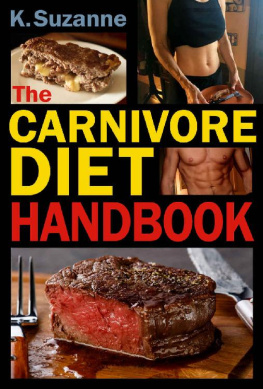

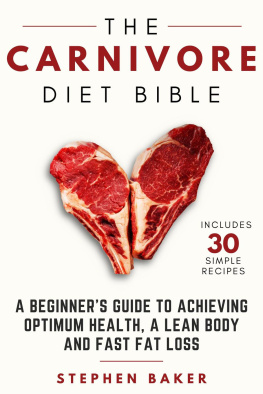
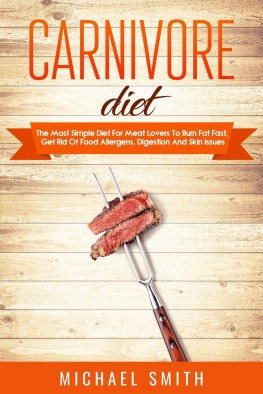
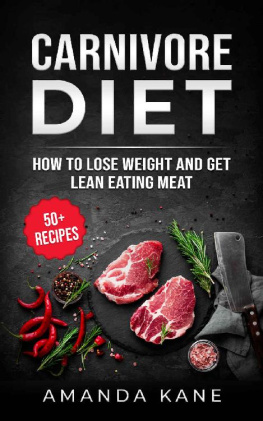
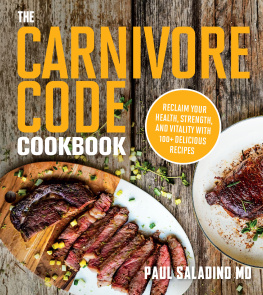
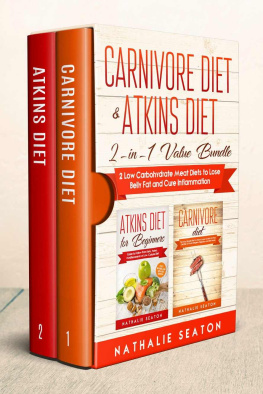
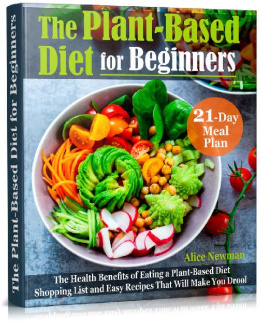
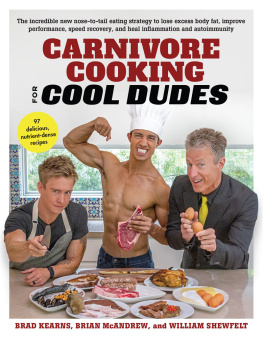
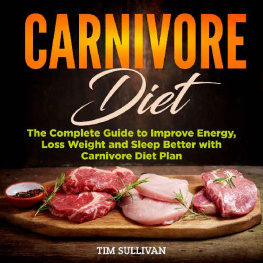
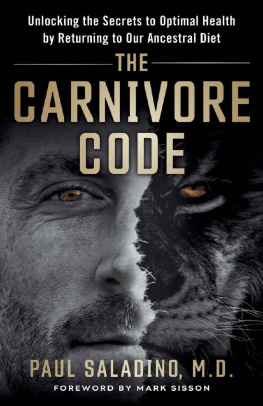
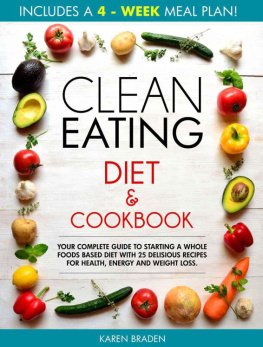


 Twitter
Twitter Instagram
Instagram